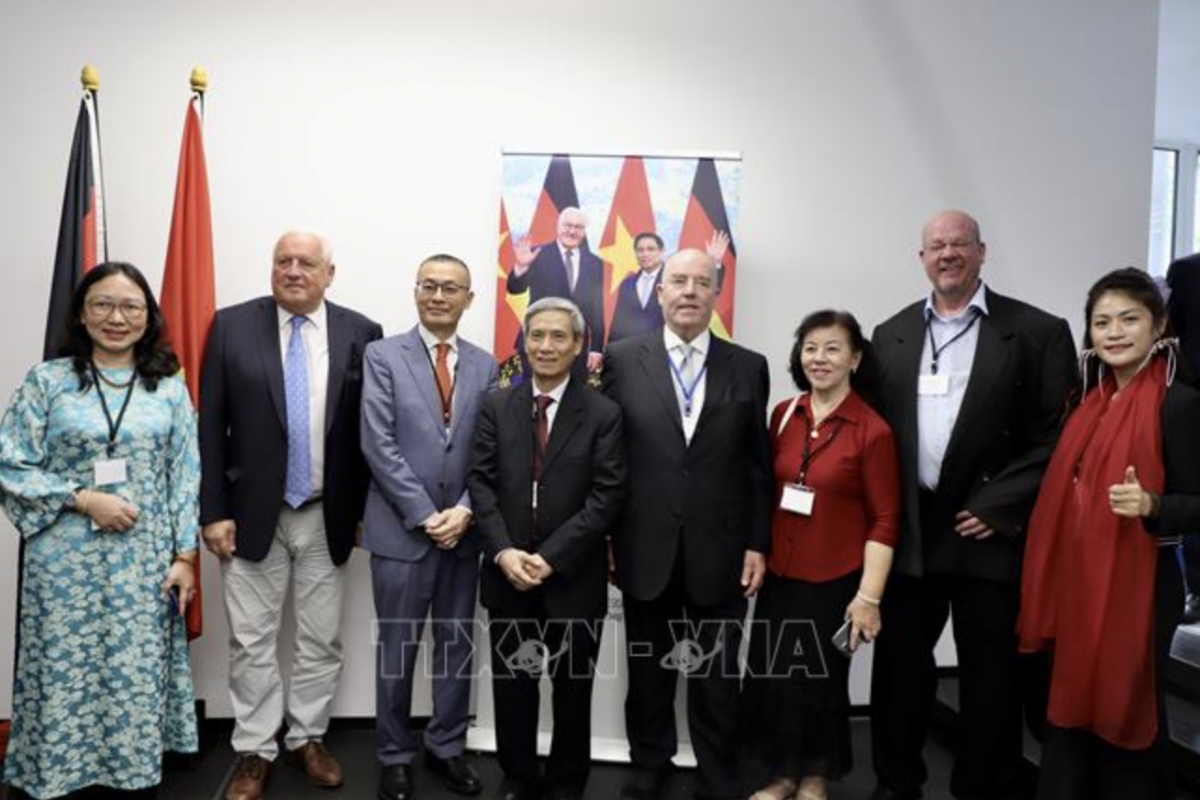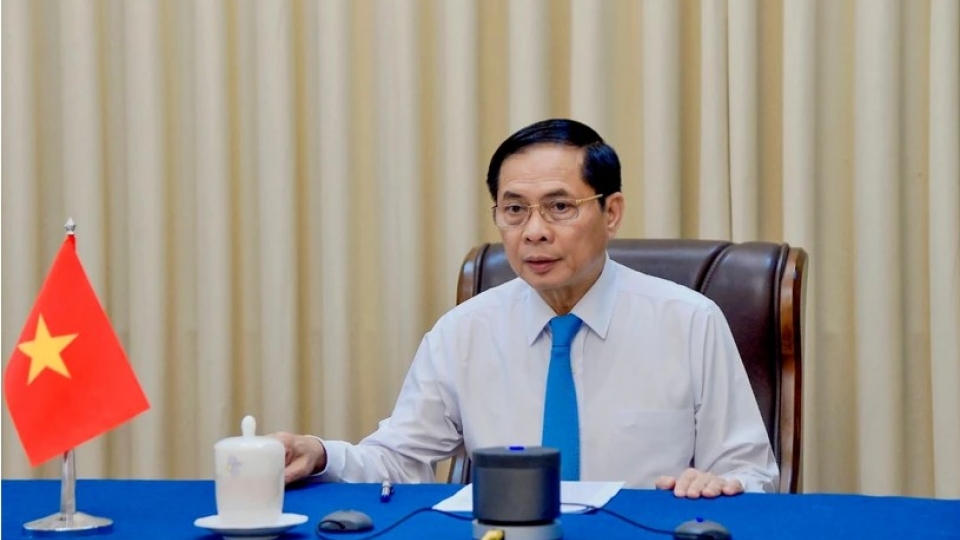Vietnam-German relations highlighted at innovation and cooperation forum
VOV.VN - A workshop titled “Innovation and Cooperation: The Future of Vietnam–Germany Relations” was held in Germany on June 25 aimed at expanding bilateral cooperation in key areas such as innovation, education, sustainable development, and digital transformation.

The workshop, jointly held by the German-Vietnamese Association (DVG) and the German University of Economics and Management (FOM), marked the 50th anniversary of diplomatic ties between the two countries.
In their welcome remarks, Professor Dr. Manuela Zipperling of FOM University and DVG President Rolf Schulze reviewed major milestones in Vietnam - Germany relations, particularly in this anniversary year. Special attention was given to this workshop, as well as a planned meeting in Hamburg this September with successful second-generation Vietnamese professionals living in Germany.
A major highlight of the conference was the screening of "Vietnam – Beating Poverty with Market Economy”, a 30-minute documentary by Dr. Rainer Zitelmann, who has studied Vietnam’s economy extensively over the past decade. The film chronicles the country’s remarkable journey from one of the world’s poorest nations to its current status as the world’s 33rd largest economy. Through the Đổi Mới (Renovation) process launched in 1986, Vietnam reduced its poverty rate from 80% in the early 1990s to just 3% today.
According to the World Bank, Vietnam is one of the most dynamic emerging economies, offering abundant opportunities for hardworking individuals and entrepreneurs. In his 2023 book “How Nations Escape Poverty”, Dr. Zitelmann cited Vietnam as a model of economic transformation. He noted that Germany’s efforts to diversify its international relations include placing increasing importance on Vietnam as a strategic partner.
Dr. Oliver Massmann, an international legal expert, attributed Vietnam’s rapid economic rise to its active participation in 17 free trade agreements and its high level of global economic integration. He pointed out that Vietnam leads the world in trade deal participation. Another factor, he added, is the Vietnamese government's strong commitment to joining global organisations such as the World Trde Organisation and the International Monetary Fund. Dr. Massmann projected that with its youthful, hardworking population, Vietnam is on track to achieve its goal of becoming an industrialised nation by 2045.
On education and vocational training, many participants praised the diligence and determination of Vietnamese students and interns, calling for greater expansion of the country’s dual-training education model. The forum also included discussions on promoting the Vietnamese language in Germany. Participants expressed hope that more German universities such as those in Berlin, Frankfurt, and Passau would reopen Vietnamese language departments. A proposal by Rolf Schulze to establish a Vietnam Studies Department at a German university received widespread support.
Taking the floor, Vietnamese Ambassador to Germany Vu Quang Minh thanked the DVG, FOM, and all partners for organising a forum that provided valuable insights into the evolution and future direction of Vietnam - Germany relations. Amid global geopolitical tensions, he said, the strategic partnership between Vietnam and Germany continues to expand comprehensively, opening new opportunities for cooperation.
Looking ahead, Dr. Nguyen Toan Thang, vice president of the Vietnam–Germany Friendship Association, emphasised that in a world shaped by wars, energy crises, climate change, and rapid technological advancements, partnerships like that between Vietnam and Germany or Vietnam and the EU are increasingly vital. As Vietnam continues to embrace international integration, it seeks deeper cooperation in science, innovation, digital transformation, and Fourth Industrial Revolution technologies.
He expressed optimism that with sustained effort from both sides to overcome challenges, Vietnam–Germany and Vietnam–EU relations would thrive and become more robust, effective, and closely interconnected in the future.




